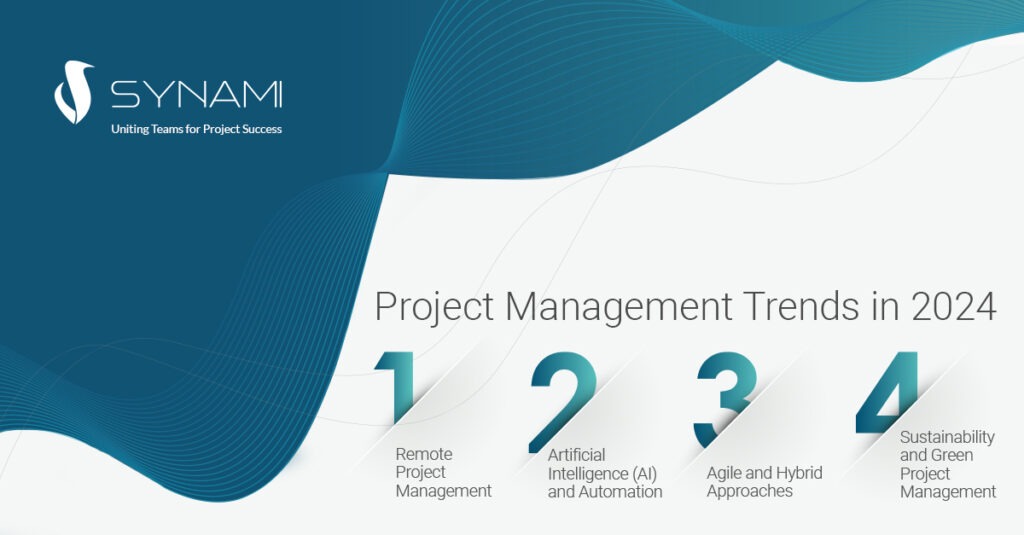As 2024 arrives, the environment is changing, and project managers are exploring new opportunities as well as continuing the previous ones. This article aims to provide you with the necessary insights to stay current in the continually growing field of project management by exploring the trends that are impacting the industry.
To use the latest developments to their advantage, project managers must constantly be informed of the latest trends and developments and implement them in their short-term and long-term goals. We are showcasing several of the most important trends for the industry in 2024 and how they will transform the way project managers work today and tomorrow.
Remote Project Management
The Covid-induced crisis has brought about a profound transformation in the conventional approach to project management.
Remote project management involves overseeing and controlling projects with team members situated in different geographical locations, often working from home or other remote setups.
This method heavily relies on a diverse set of virtual collaboration tools, including project management software, communication platforms, file-sharing tools, video conferencing, and other technologies that facilitate seamless interaction and information exchange among team members.
As the project team adopts a ‘hybrid’ or remote working style, it necessitates a higher degree of flexibility and autonomy.
Artificial Intelligence (AI) and Automation
Integrating AI and automation tools into project management processes is intended to raise efficiency, automate repetitive tasks, and offer insightful data for decision-making, playing an increasingly pivotal role in reshaping how projects are planned, executed, and monitored.
AI streamlines routine and repetitive tasks, enabling project managers and team members to concentrate on more strategic and complex aspects of project management.
Utilizing AI algorithms, project managers can optimize project schedules by accounting for various constraints, dependencies, and uncertainties, leading to the creation of more realistic and achievable project timelines and a reduction in the likelihood of delays.
Agile & Hybrid Approaches
The widespread adoption of Agile methodologies is evident, and there is a growing trend towards hybrid project management approaches that integrate both Agile and traditional methodologies, responding effectively to diverse project requirements.
Hybrid project management endeavors to find a harmonious equilibrium between the predictability characteristics in traditional project management methods (such as Waterfall) and the adaptability offered by Agile. This approach empowers organizations to customize their strategies based on the unique demands of a given project.
Sustainability and Green Project Management
As organizations increasingly prioritize environmental and social responsibility, incorporating sustainable practices into project management processes has gained significant importance.
Green project management emphasizes the efficient use of resources, encompassing energy, materials, and water. Both new and ongoing projects involve the implementation of strategies to reduce resource consumption, optimize processes, and minimize waste generation.
Project managers practicing green project management must diligently work towards waste reduction by implementing strategies, endorsing the use of recyclable materials, and establishing comprehensive systems for the proper disposal and recycling of project-related waste.
Innovations and Insights: What the future Holds for Project Management in 2024
The world of project management is consistently considered a precursor for shifts and a “trendsetter” in the broader organizational panorama. This is mostly because of its adaptability and its influence in a diverse array of industries.
In the past years, project management has been going through a rather significant transformation, mostly driven by the advancement of technology, but also by the changing work dynamics and the evolving business landscapes, which are particularly evident lately.
In this dynamic environment, project teams are facing new challenges and new opportunities, with the project managers constantly working on staying on top of latest developments, adapting to the new circumstances, and using the new technologies to make projects more efficient.
Holding strictly to historical and current practices without an eye on the future is not the optimal approach. A glimpse into the latest and upcoming trends in project management can be a transformative strategy for project managers.

